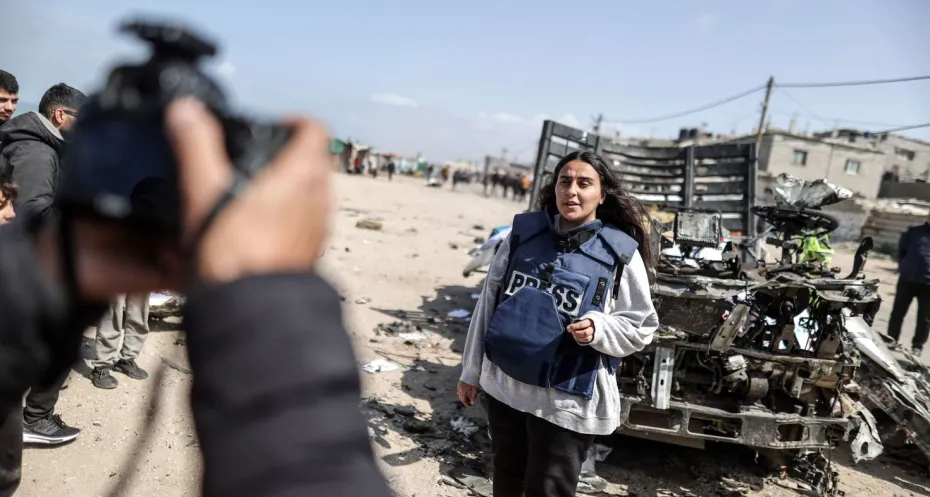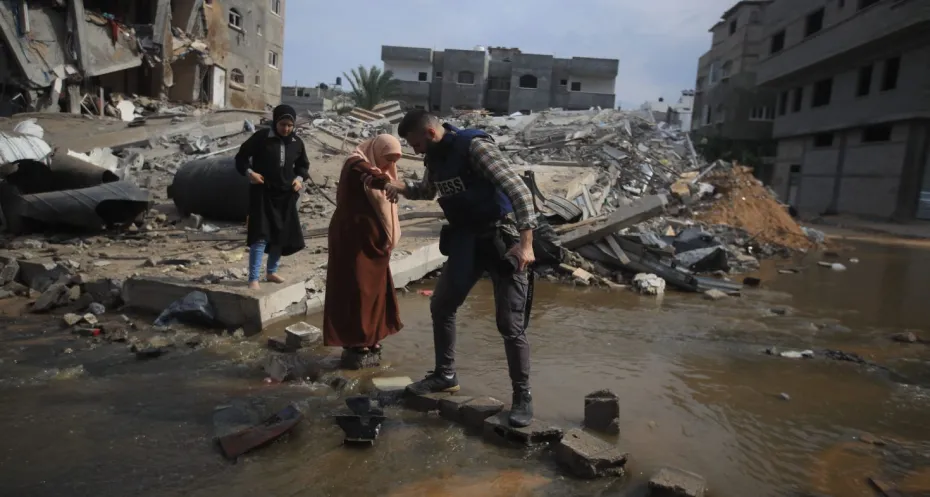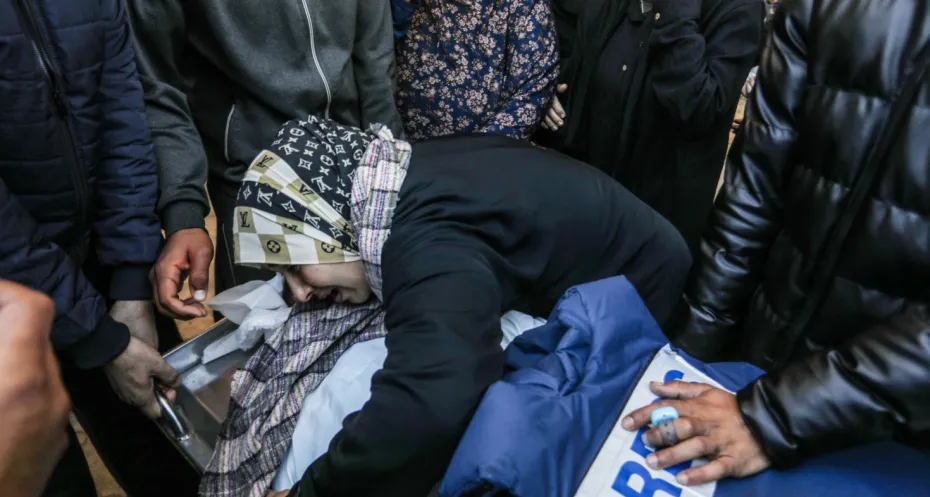Crisis response in Gaza: a life or death obstacle course

Six months into the violence in Gaza, the situation only keeps worsening for the Palestinian people, including media workers. This greatly affects access to reliable information, not just for Palestinian people for who information can be life saving, but also for the international public. Our crisis team is relentlessly looking for ways to support media workers and their families on the ground. However, this crisis turns out to be the most challenging we have seen within our work in terms of crisis response.
Free Press Unlimited has many years of experience in responding to crises and supporting journalists in the most difficult of circumstances so they can continue their important work. Examples are the Taliban take over in Afghanistan, the Russian invasion of Ukraine, the coup in Myanmar, and the continuously re-emerging conflicts in the Democratic Republic of Congo and Sudan.
The situation in Gaza is one like no other. Due to closed borders, continuous bombing and attacks, power black-outs and limited access to internet, it is highly challenging for media workers to continue reporting, let alone get in touch with international support organisations like Free Press Unlimited. At this point it is nearly impossible. Therefore our emergency team actively tries to look for ways to get support to journalists in Gaza and the West Bank. Some journalists remain active, as far as this is possible, with reporting and documenting the current events. We see great determination to stay in touch with the outside world and share stories from within Gaza on the impact of Israel’s violence and the lack of humanitarian aid.
Biggest obstacles
While our emergency team has been able to provide direct emergency assistance to media workers in other conflict areas, such as Ukraine or Syria, they are facing great obstacles in providing protection measures to media workers in Gaza. In past crises responses, we focused on providing ‘safety measures’ to media workers in conflict zones by for example providing ballistic press vests and financial support for relocating to safety. Yet, in Gaza, a ballistic vest is not enough to protect journalists. On the contrary, the press vests might even put them at higher risk, considering that this is one of the deadliest conflicts ever documented for media workers, it seems to make journalists a target. Besides this, financial support for relocation is not as helpful when there are no safe areas in Gaza, borders are closed and routes to safety inaccessible.
It is fair to say that the conflict in Gaza has introduced severe challenges to respond to the needs of media workers whose lives are at risk. However, funds for media workers in Gaza are still essential – salaries are not being paid, basic living costs have increased, homes have been destroyed and essential reporting equipment is damaged.
A lack of everything
Journalists are civilians first and foremost, and the situation for all people in Gaza is horrendous. Every day is a life or death obstacle course. The needs of people in Gaza have come down to the most basic of needs: food, water and electricity. There is a lack of everything. Our aim is to help journalists who are able and willing to continue reporting. To hold those responsible accountable, documentation is vital.
Therefore our emergency team is in touch with local organisations who are advising us on which support is needed and what can be purchased and distributed, such as quick cash assistance for basic living support and finding shelter, as well as support to media houses for damaged equipment, such as cameras and live streaming equipment, so that reporting can continue at all time.
We are for example in contact with Watan Media Network, that supports over 70 journalists and media workers who have remained active in the West Bank and Gaza strip. They were even able to launch several humanitarian support initiatives for media while also maintaining independent news coverage. Our contact shared: “While facing the most severe challenges in a very dangerous environment, it is still our role and responsibility as an independent media to provide transparent, credible and professional news, as opposed to spreading dangerous disinformation that only fuels further escalation.” Free Press Unlimited was able to provide support to Watan Media Network which was used to provide their media workers with necessary tools and equipment to continue their work.
Besides this we do see requests for emergency response coming in through our Reporters Respond emergency fund, and continue to process these as fast as possible. Overall, we have been able to provide different kinds of support, ranging from living support to equipment support, from which more than 100 media workers have benefited in and around Gaza.
Psychosocial support
The ultimate impact of all the events in Gaza on the people there cannot be foreseen. However, from experience with other crises we know that there will be a great need for psychosocial support. This is most likely to emerge after media workers have been relocated to safety and there is time for the impact of all they have witnessed to settle in, or in the case of a cease fire. We also foresee this happening with journalists in the region who report on Gaza and consume traumatic images on a daily basis, and therefore deal with secondary trauma. We are developing strategies to provide this type of support to those in need when the time comes. Additionally, Free Press Unlimited works together with the Journalists in Distress Network to collaborate in the current crisis response in Palestine.
Free Press Unlimited reiterates its call for an immediate ceasefire and urges non state actors and (world) leaders of all countries involved to ensure the safety and security of media workers covering the violence in Gaza. Journalists killings must be promptly and independently investigated to end impunity for these crimes and to safeguard access to information, journalists should be allowed to freely enter and exit the Gaza strip.



